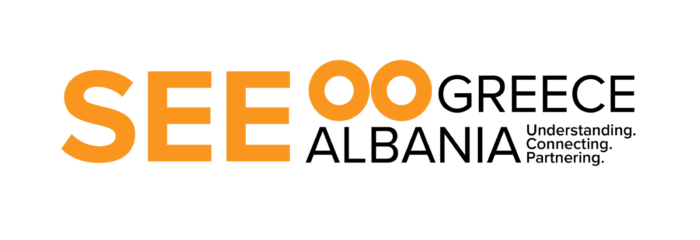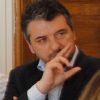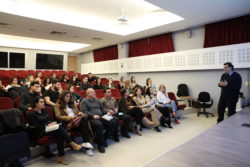ALGREE – “Albania-Greece: Understanding. Connecting. Partnering.” is a three-year project implemented by the South East Europe Programme of ELIAMEP and powered by the Open Society Foundation for Albania (OSFA-Open Society Foundation Albania) and the Friedrich Naumann Foundation for Freedom Greece and Cyprus (FNF-Friedrich Naumann Foundation),. It aims to tackle in a comprehensive manner serious problems and gaps in bilateral/official, societal/grassroots relations between Albania and Greece. ALGREE intends to highlight those elements that could be used by officials, media, influential public figures and the civil society so as to improve the level of trust and understanding between the two countries. ALGREE has the aspiration to provide ideas, data and tools upon which efforts to build a cooperative and European future between the two societies could be based. To this end, ALGREE will engage and cooperate with multiple stakeholders and other interested parties as well as with the wider public in both countries. The project’s comprehensive interventions will focus on three key levels:
- official/governmental
- media landscape and media representations
- societal/grassroots
Rationale
Bilateral relations between Greece and Albania have at times been turbulent. This rather complex relationship, however, has the potential to become a success story in the Balkans, as the two countries share similar values and have strong human and economic bonds. Both Greece and Albania also share the same vision and goals for the geopolitical position of the region; that is, the integration of the Western Balkans into the European Union and NATO. The two societies are also very well interconnected, as they are bonded by the presence of a large Albanian migrant community in Greece and of the Greek minority in Albania.
By and large, both peoples have in recent years improved their perceptions about one another. However, some negative perceptions and stereotypes persist. The knowledge that each side holds for the other is often inaccurate, something that can be attributed to the role of media in both countries. According to relevant studies, some of which conducted by ELIAMEP in co-operation with OFSA, there is still much stereotyping and prejudice on the public agenda of both countries.
Despite some improvement in public attitudes, both societies still see each other with a significant measure of distrust, lack of understanding for each other’s concerns, sensitivities, or political positions. Moreover, media typically adopt an ethnocentric standpoint when it comes to reporting on complex issues troubling bilateral relations. There is still a great amount of work that needs to be done to ensure that the two societies will increase their understanding of each other and consolidate an atmosphere of trust.
Key objectives
The project aims to contribute to reversing the above situation. It has the following key objectives:
- To analyze in a rigorous manner the role that certain media, journalists and opinion makers play in the formation and consolidation of negative stereotypes and prejudices, and in the spread of hate speech; to counter these with tools and material that can be used by media, journalists, stakeholders in both countries and beyond. To identify and highlight positive stories, narratives and elements that may act as bridge makers and actors of reconciliation.
- To formulate and implement a communication and public advocacy strategy for cross border understanding; to reach as wide audiences as possible through dissemination and awareness raising activities; and to contribute to the improvement of the climate of trust and understanding between Greece and Albania.
- To organize discussion sessions with key members of the policy community in both countries and to produce and disseminate ideas that will push forward the agenda of improving our bilateral official relations.
- To contribute to cross-border cooperation and reconciliation between Albania and Greece in the context of the two countries’ joint Euro-Atlantic orientation, and thus contribute to Albania’s EU integration process. To place Greece at the forefront of European efforts to assist and accelerate the EU enlargement to the Western Balkans.
Outputs
Over a period of 3 years, ALGREE will produce:
- Media Observatory Reports (MORE).
- A scholarly study of media representations in both countries.
- An opinion poll and a report analysing public attitudes in the two countries.
- Thematic briefs.
- Policy briefs.
- A guidebook and other training material for use in training sessions for journalists.
Media Observatory Reports (MORE)
The Media Observatory Reports (MORE) are the fruit of systematic monitoring of key Greek and Albania media. We monitor, analyse and present in succinct reports the impact for Albanian media reporting of Greece and Greek media reporting of Albania as well as the coverage of issues of common interest.
Click here to read about the scope of MORE & publications.
News & Media:
The team of ALGREE talks to the media in both Albania and Greece about the scope of the project.
Funding
The project is funded by Open Society Foundation for Albania (OSFA) and Friedrich Naumann Foundation for Freedom Greece and Cyprus (FNF).













